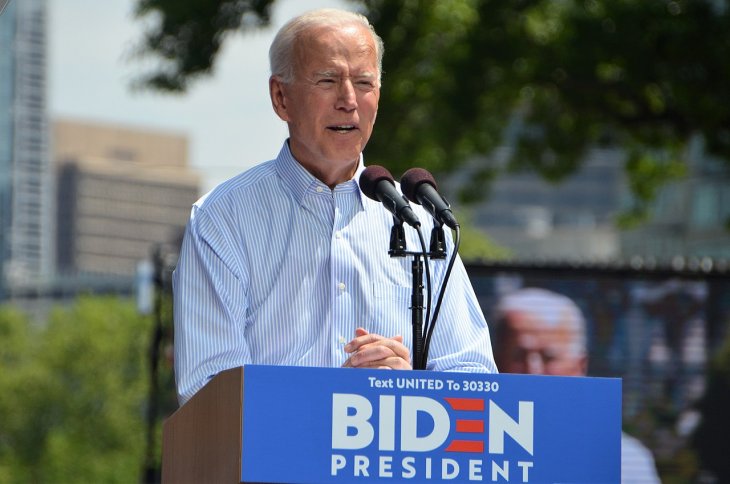President Joe Biden’s long-awaited announcement of decision to run for the second presidential term has brought into a sharper focus the new quality of US leadership in global affairs, which he has delivered, perhaps without any grand strategic design.

President Joe Biden. Photo: Michael Stokes / Wikimedia Commons
The 2024 US elections will be run and determined primarily by competing domestic agendas, as is usually the case, but the coincidence of Biden’s announcement with the state visit to USA of South Korea’s President Yoon Suk Yeol points to a greater prominence of foreign policy matters than was the case in his previous contestation with President Donald Trump in 2020.
For the Korean guest, as for the majority of world leaders, with the obvious exception of President Vladimir Putin, Biden’s second presidency is not just an entirely agreeable, but perhaps even the best possible prospect. This is not only because the known quality is typically preferrable to an uncertain transition, but primarily because Biden has consistently outperformed their expectations.
Public opinion in the world may be less kind to Biden, but he still remains in the positive territory, with 41% approval and 33% disapproval ratings, according to a recent Gallup poll. It is certainly the Russian aggression against Ukraine that has set a crucial test for Biden’s leadership, and as the war hangs in a precarious balance after 14 months of hard fighting, the provisional conclusion that he has delivered what was necessary is beyond doubt.
The US-led Ukraine Defense Contact Group, which coordinates the supplies of military aid to the Ukrainian army, held its eleventh meeting in the Ramstein format in the mid-April, and the NATO summit in Vilnius, Lithuania in mid-July is expected to demonstrate yet again the unwavering commitment of Biden’s administration to ensuring Ukraine’s victory, even if its key words “as long as it takes” may be questioned by sceptics of various persuasions.
Troubled waters in Asia
What is a clear-cut and rigidly-structured confrontation in Europe, is at the same time a far more complex and fluid competitive interplay in East Asia, where multiple new tests for Biden’s leadership are shaping up. Political interactions in this vast region are well-developed, but cannot qualify as a “security architecture”, and the workings of ASEAN and its Regional Forum, which in 2023 are overseen by Indonesia, have traditionally proceeded by downplaying disagreements and bracketing conflicts out, rather than by addressing them.
East Asian states are acutely aware of China’s geopolitical ambitions and expanding capabilities for projecting power, which stimulates their interest in cultivating ties with USA. At the same time, they are wary of the risks emanating from the maturing US-China rivalry and seek to protect their commercial ties with the neighboring economic giant from the damage of “decoupling”. This ambivalence makes the task of alliance management more delicate and complicated for the US than charting a straight course to confronting China as the multiplying flock of “hawks” in Washington D.C. advocates.
President Biden has managed to navigate these troubled waters without disappointing US friends and turning various fence-sitters into foes. The war in Ukraine demands his priority attention, but he has never lost sight of the stormy clouds around Taiwan, even if serious delays in deliveries of paid-for US arms have occurred. When French President Emmanuel Macron returning from the state visit to Beijing he made some ill-considered remarks about unnecessary risks for Europe related to “taking cue from US” in the Taiwan crisis. Biden refrained from any reprimands and merely let his traditionally self-aggrandizing ally to weather the storm of European and domestic criticism.
Considerate patience
This considerate patience is a defining feature of Biden’s style of leadership, perhaps influenced by reflections on many gaffes he himself has committed during his long political career. Leading with patience, he has not pressed Japan to increase its defense budget, but is very supportive to the plans for investing in modernizing the capabilities of Japanese Self-Defense Forces.
He has refrained from any interference in the deal on exporting South Korean tanks and howitzers to Poland, but grants US support to the remarkable surge in modernization of defense industry in South Korea. The Philippines felt no pressure from the USA regarding the access to new bases, but are eager to engage in enhanced military cooperation, despite the deep-seated reservations.
Joe Biden is not striving to get his name attached to a US security doctrine, in the tradition of Harry Truman and Ronald Reagan. He didn’t expect his hard-won term in the high office to be a war-time presidency, but he has risen to the extra-tough challenge and delivered the leadership necessary for uniting the West shocked by the crude Russian aggression.
He is also very aware of the resentment that the re-energized and determined West generates in many quarters of the hugely diverse and naturally disunited Global South. Russian and Chinese narratives on countering the alleged US “hegemonism” make poor fit with Biden’s policy of closer engagement with allies and respect of differences with many emerging powers, from India and Indonesia to Brazil and Mexico. Irrespective of his success or the lack of thereof in the election race, he has proven that the US leadership can be patient and positive, rather than arrogant and egoistic, and deserves credit for this.
- Pavel K. Baev is a Research Professor at PRIO
- This text is also published by Panorama 4 May 2023